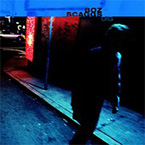North County Times - Boz Scaggs Dig Interview
[By: Alan Sculley - North County Times - 2001]When Boz Scaggs thinks about his current CD, "Dig," he is reminded of his 1976 album "Silk Degrees." Considering that many fans and critics feel "Silk Degrees" is Scaggs' definitive work, this bodes well for "Dig." "I knew that after we had made 'Silk Degrees' that we had done something good. As musicians, we were proud of that record," Scaggs said. "We stretched ourselves out. We satisfied ourselves as musicians. We were very proud of that record. "I've had the same feelings about this record," he said of "Dig." "I don't know, nor do I really care in a bigger sense, what happens to this record commercially. But I do know I got closer to doing what I needed to do musically on this record than I've gotten on any record I've ever made." Time will tell if Scaggs' fans consider "Dig" to be in a league with "Silk Degrees," but it is a CD that has its share of virtues. It is perhaps not as immediately accessible as "Silk Degrees," and lacks a song like "Lido Shuffle" or "Lowdown" that stands out as an attention-grabbing single. Instead, "Dig" may take a few listens to fully absorb the charms of some of its songs. One reason for that is that the songs are somewhat low-key and subtle. For instance, the ballad "Sarah" has a fairly unremarkable melody. But eventually it takes hold behind the intimacy in the Scaggs' vocal for this sweetly romantic tune. Two other tunes, "Desire" and "Thanks to You," also forsake the big-bodied production used by so many balladeers and rely on their sumptuous melodies and tender moods to overtake the listener. The quality of music on Scaggs' albums has become an important consideration for his fans because over the past two decades, he has been less than prolific. The 57-year-old singer/guitarist first came to prominence in the late 1960s playing guitar with Steve Miller. Scaggs went solo in 1969, debuting with a self-titled CD that year. But it really wasn't until Scaggs' fifth CD, 1974's "Slow Dancer," that audiences began to discover his music. Then two years later, Scaggs' career shifted into overdrive when "Silk Degrees" spawned the hits "Lowdown," "Lido Shuffle" and "It's Over" and topped 4 million in sales. Two more million-selling albums followed, "Down Two Then Left" in 1977 and "Middle Man," in 1980. Then Scaggs essentially bailed out on his fast-moving career. After going through a divorce, he decided to focus on spending time with his two young sons from that marriage and pursuing other business ventures. In his hometown of San Francisco, he started a restaurant, the Blue Light Cafe, which he later sold, and opened the still-thriving roots music club, Slim's. One of Scaggs' sons, Oscar, was working as a sound mixer at Slim's in 1999 when he died from a heroin overdose at the age of 21. Finally, Scaggs returned to active music duty in 1988 with the album "Some Roads." But only three albums have followed since, "Some Change" in 1994 and "Come On Home," a collection of R&B covers, in 1997. "If I don't have anything to say, I don't say it. If I don't have an album to make I don't make it," Scaggs said. "I feel fortunate that I took a (near) 10-year break and really got away from it. In doing so, I think I remembered what it was like in the beginning. I have similar feelings now as to when I first started playing. It's new to me, I feel like I've just started over in some ways." In some important respects, "Dig" will take fans back to an earlier point in Scaggs' career as well. Not only does the CD share some of the smooth rhythm and blues personality of "Silk Degrees," it also marks a reunion between Scaggs and Toto keyboardist David Paich, who last collaborated on songs on that landmark 1976 album. Scaggs, Paich and guitarist Danny Kortchmar shared production on "Dig," and Scaggs said these sessions were some of the most enjoyable of his career. "I felt a confidence with this team that I'd never really felt in the studio before," Scaggs said. "I was engaged in a way that I'd never been before. I got an awful lot of help; an awful lot of play between David and Danny. I was really given a lot more freedom to concentrate on my lyrics, and the music really took a form that was closer. It was the most successful record I've ever done in terms of really connecting, having the help of these two guys as co-writers and arrangers. I was just really able to feel more at home with my work than I ever had.
|
|||||||


